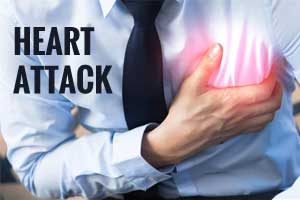- Home
- Editorial
- News
- Practice Guidelines
- Anesthesiology Guidelines
- Cancer Guidelines
- Cardiac Sciences Guidelines
- Critical Care Guidelines
- Dentistry Guidelines
- Dermatology Guidelines
- Diabetes and Endo Guidelines
- Diagnostics Guidelines
- ENT Guidelines
- Featured Practice Guidelines
- Gastroenterology Guidelines
- Geriatrics Guidelines
- Medicine Guidelines
- Nephrology Guidelines
- Neurosciences Guidelines
- Obs and Gynae Guidelines
- Ophthalmology Guidelines
- Orthopaedics Guidelines
- Paediatrics Guidelines
- Psychiatry Guidelines
- Pulmonology Guidelines
- Radiology Guidelines
- Surgery Guidelines
- Urology Guidelines
New antioxidants may reduce risk of second heart attack : JACC

In the months after acute myocardial infarction (MI) or stroke, there is an increased likelihood that patients will have another attack or stroke, reports a study published in the Journal of the American College of Cardiology which explains what happens inside blood vessels which increases risk and suggests a new way to treat it.
Federico Moccetti and associates conducted a study to investigate whether sustained proinflammatory and prothrombotic endothelial alterations occur in remote vessels after MI.
According to the investigators, heart attacks in mice caused inflammatory cells and platelets to more easily stick to the inner lining of arteries throughout the body and particularly where there was already plaque. As a result, these sticky cells and platelets caused plaque to become unstable and contribute to blood clots that led to another heart attack or stroke.
Read Also:New device detects patients at imminent risk of heart attack/stroke
But the study found treating mice that had experienced a heart attack or stroke with the powerful antioxidant apocynin can cut plaque buildup in half and lowered inflammation to pre-attack levels.
"Knowing that newer forms of antioxidants such as apocynin can lower the risk of a second heart attack or stroke gives us a new treatment to explore and could one day help reduce heart attacks and strokes," said the paper's corresponding author, Jonathan R. Lindner, M.D., a professor of cardiovascular medicine at the OHSU School of Medicine.
The researchers discovered the sticky cells and platelets by using unique forms of ultrasound imaging they developed to view molecules on the lining of blood vessels.
The study concluded that acute MI stimulates a spectrum of changes in remote vessels, including up-regulation of endothelial inflammatory adhesion molecules and platelet-endothelial adhesion. These remote arterial alterations persist longer in the presence of hyperlipidemia and are associated with accelerated plaque growth and inflammation, and are attenuated by Nox inhibition apocynin.
For reference log on to https://doi.org/10.1016/j.jacc.2018.06.044

Disclaimer: This site is primarily intended for healthcare professionals. Any content/information on this website does not replace the advice of medical and/or health professionals and should not be construed as medical/diagnostic advice/endorsement or prescription. Use of this site is subject to our terms of use, privacy policy, advertisement policy. © 2020 Minerva Medical Treatment Pvt Ltd